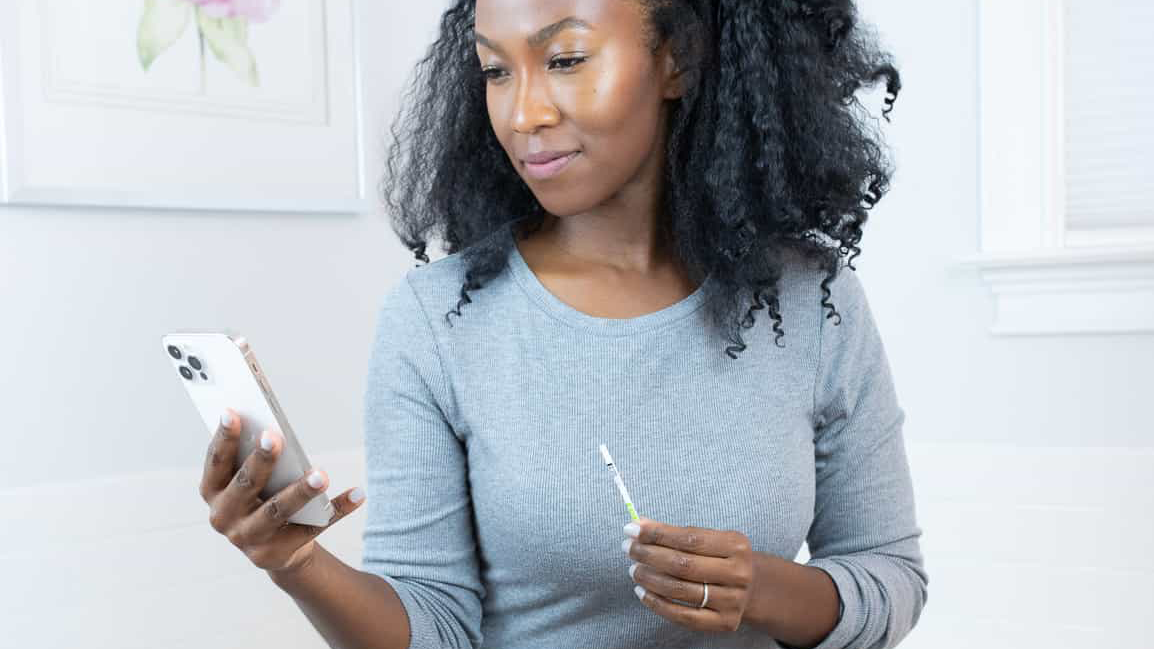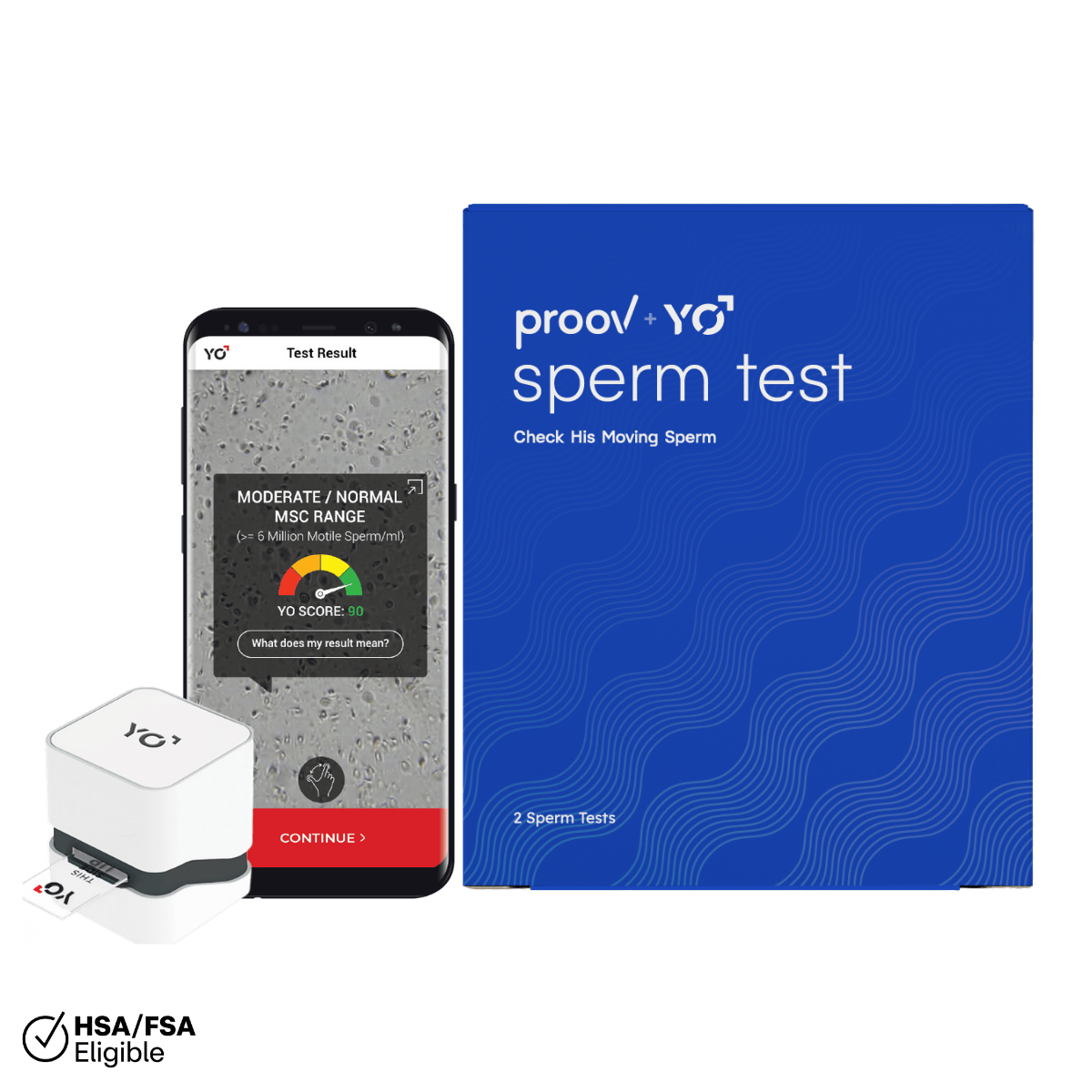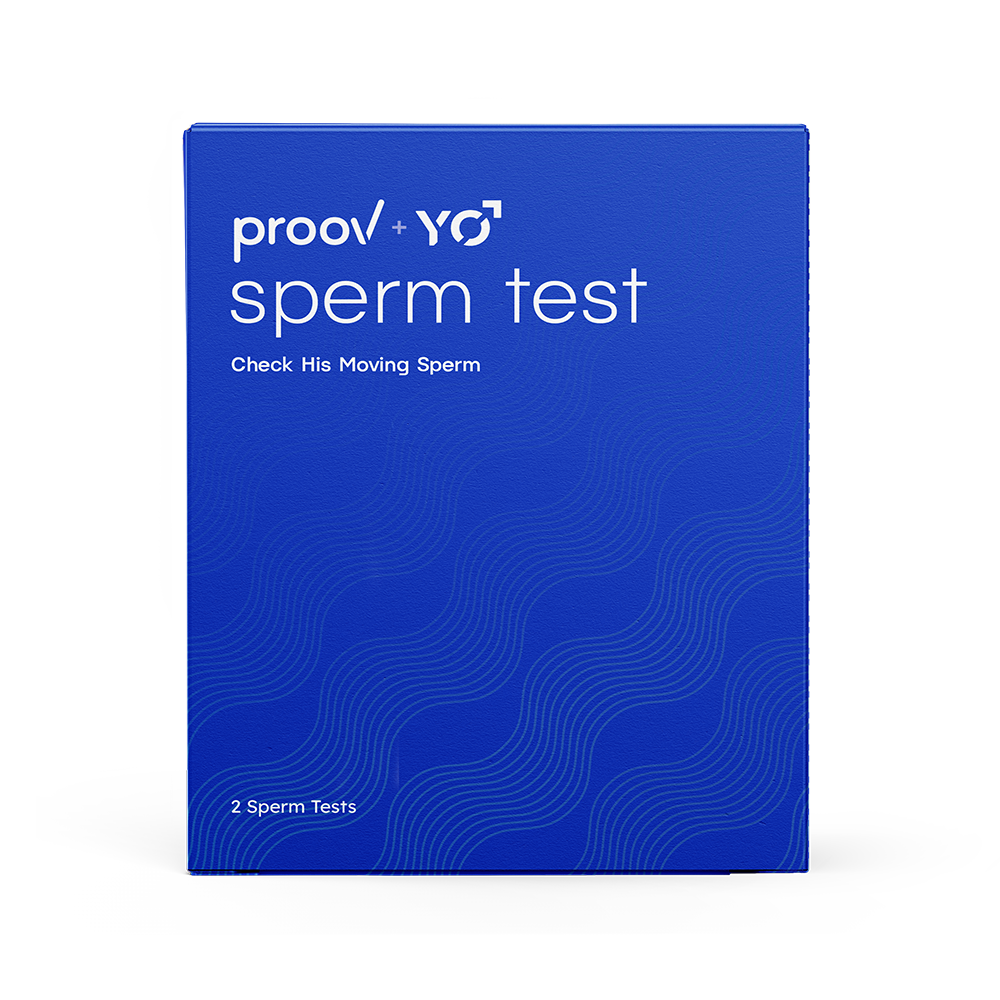If you’re wondering when and if you’re ovulating, one of the first tools many people turn to are ovulation predictor kits or LH tests, like Proov Predict. These tests look for the presence of luteinizing hormone, a hormone that surges 12-36 hours before ovulation.
If you get a positive ovulation test, it’s extremely likely you’ll ovulate in the next day or two. But especially after several negative tests, it’s common to ask, “Can I have a negative ovulation test but still ovulate?”
The short answer: Yes, BUT it may not be a successful ovulation, and that’s why it’s so important to confirm successful ovulation, not just presence or absence of ovulation! Keep on reading for the long answer.
The ins and outs of LH tests
Luteinizing hormone is triggered by rising estrogen, and acts on the ovary to prompt egg release and transformation of the follicle into the corpus luteum. A few hours after LH begins to rise, it can be detected in urine. Most LH tests turn positive (meaning the test line is as dark or darker than the control line) when urinary LH hits 25 mUI/mL.
Studies have shown that 25 mUI/mLis the most reliable level at which to predict ovulation, but it’s possible to ovulate with an LH level over 20 mUI/mL. Since LH levels can vary from person to person, some people with lower LH levels may just never quite turn an LH test positive, but they’re still ovulating!
We recommend beginning to test early in your cycle, and keep testing until you get a positive. The Proov Insight app can help with timing this!
If you just aren’t getting a positive, it’s worth reevaluating your testing routine. You may just be missing your surge!
The length of the LH surge also varies by individual, so while one person with a longer surge may be able to test once a day at inconsistent times and get a positive LH, if you have a shorter surge you may benefit from testing at the same times twice a day! You may also need a longer urine hold before you test (at least two hours, but maybe up to four) if your LH levels are particularly low.
If you try changing up your testing routine and you still aren’t getting positive tests, you may be wondering, "Why is my ovulation test negative?" You may just be one of the approximately 10% of women who have LH levels too low to get a positive. You may still be ovulating, but now it becomes key to not only confirm ovulation, but also determine successful ovulation.
Low LH and Successful Ovulation
So, we’ve determined it’s definitely possible to be ovulating without ever getting a positive LH test, although it’s relatively unlikely. But if you’re never getting a positive — and even if you are — what next? LH tests predict ovulation, but what they don’t do is confirm it or tell you anything about the quality and success of ovulation.
Can you ovulate with low lh levels? While it’s extremely likely for ovulation to follow an LH surge, it isn’t guaranteed, especially if you have polycystic ovarian syndrome (PCOS), certain endocrine disorders, or a history of anovulation. Even in cycles that appear “regular,” it’s possible to not actually be ovulating.
It’s also possible to release an egg without a positive ovulation test, but if your LH levels are too low, the follicle may not form a healthy corpus luteum and produce enough progesterone for a healthy luteal phase and successful implantation of a fertilized egg. High enough progesterone levels in the luteal phase (the part of your cycle following ovulation) are important to reduce risk of miscarriage, support successful implantation, and also to support overall health even if you aren’t trying to conceive.
Confirming Successful Ovulation
If you’re thinking, “How do I confirm successful ovulation if an ovulation test alone won’t do it?” Don’t worry! We’ve got you covered.
There are a few common ways to confirm ovulation.
Basal body temperature (BBT) rises after ovulation, and can be measured every morning to confirm that ovulation occurred and progesterone is rising. However, it can’t tell you whether or not ovulation was successful, just whether or not it happened.
Your provider can also use serum progesterone blood tests and ultrasounds to confirm ovulation. These can be invasive and sometimes expensive, and require you to go to the doctor’s office.
If you want to determine the success of ovulations at home, though, that’s where we come in! Proov Confirm is the only FDA-cleared test to determine successful ovulation. Confirm tests PdG, a urinary metabolite of progesterone. PdG will only rise high enough for a positive test after ovulation that resulted in successful corpus luteum formation.
If you aren’t sure if you’re ovulating, or you suspect you are but your LH tests aren’t positive, testing PdG on days 7-10 post peak (you may need to use another method like cervical fluid to determine peak day) will not only determine the presence or absence of ovulation, but also give you an ovulation score. This ovulation score can be used to help understand if you’re ovulating successfully and, if not, what next steps you can take.
So now you know — while it’s technically possible to ovulate without a positive LH test, it’s uncommon, and unlikely to be successful ovulation. That’s why it’s important to confirm successful ovulation too!
Not ovulating, and not sure where to start? Check out 4 Possible Reasons You’re Not Ovulating














